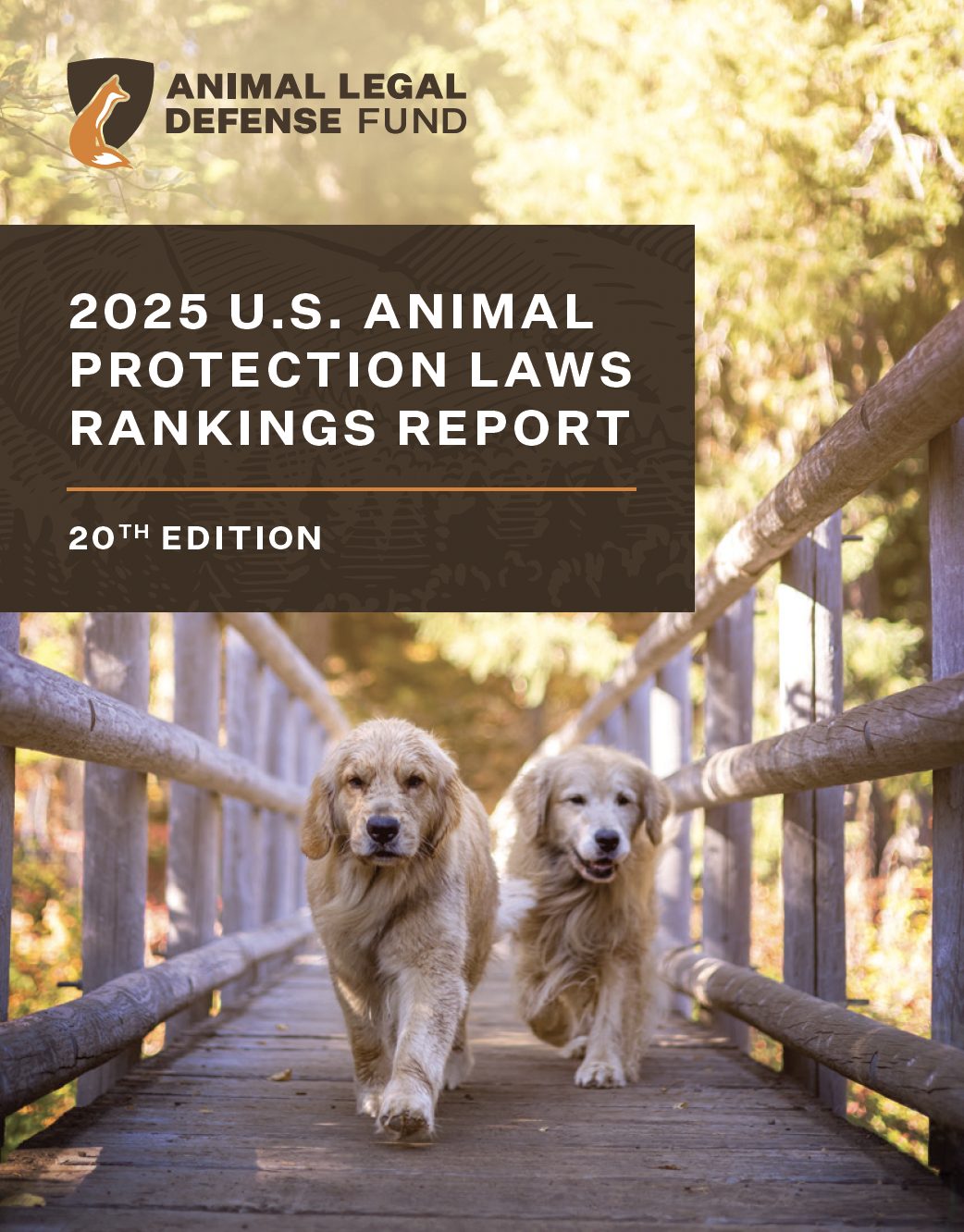
Laws with animal cruelty added to their definitions of “coercive control”
2024 U.S. Animal Protection Laws State Rankings
Include animal cruelty in their statutory definition of “domestic violence”
In 2024, four states — Colorado, Massachusetts, New Jersey, and Vermont — enacted laws adding animal cruelty to their definitions of “coercive control.”
Massachusetts, New Jersey, and Vermont’s definitions of “coercive control” exist within their states’ codes for domestic violence protection orders. In each of these states, the term “domestic violence” is defined slightly differently, but generally tends to include things like acts and threats of physical harm, sexual abuse, and coercive control. “Coercive control” is in turn defined to include patterns of behavior intended to intimate, harass, or control a family or household member, such as by isolating the victim, depriving the victim of basic needs, or controlling the victim’s communications and movements. Each of these three states also included threats of harm to animals to intimidate or control a household member. Massachusetts and Vermont’s laws apply to any animal with whom a household member is connected, while New Jersey’s law is limited to the individual’s “pet.”
“Domestic violence abusers know how much a companion animal means to their human victims—and too often exploit this bond, often threatening or even harming those animals as a means of control,” says Animal Legal Defense Fund Criminal Justice Program Director Lora Dunn. “It is vital that the law recognize this coercive control as a form of domestic violence, for a very practical reason: so that human victims can obtain a protection order and remove themselves and their animals to safety.”
As of 2024, 14 states plus the District of Columbia include animal cruelty in their definitions of domestic violence.
Colorado’s inclusion of animal cruelty as “coercive control” is in a slightly different context. Since 2007, Colorado has already included animal cruelty in its definition of “domestic violence.” In 2024, Colorado adopted a definition of “coercive control” including animal cruelty within the context of child custody. This new law provides that a court may consider any instances of coercive control — including threats or harm to a companion animal with whom the child shares an emotional bond — when deciding child custody disputes. Social services workers also have a duty to report evidence of coercive control.
Pennsylvania similarly enacted legislation in 2024 which touched on similar issues. It amended its child custody statutes, permitting courts to consider prior animal cruelty convictions when making child custody rulings. In the legislative findings for that bill (which are not actually incorporated into statute, but are still part of the legislative record), the legislature declared that “Domestic abuse is a pattern of abuse within the family or household and can include abuse of a partner, spouse, child or pet.”

You Can Protect Animals
Since 1979, the Animal Legal Defense Fund has led the charge to win animals the legal protection they so desperately need—and deserve. Your generous gift will assure that we can continue to take on cases that advance the interests of animals.

